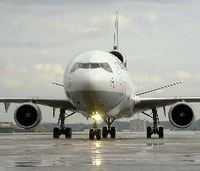(BRUSSELS) – The EU Commission re-imposed a fine of EUR 776 million on 11 air cargo carriers Friday for operating a pricefixing cartel, re-adopting a decision annulled by the EU’s top Court on procedural grounds.
The EU executive had imposed fines of nearly EUR 800 million in November 2010 on 11 air cargo carriers for taking part in a price-fixing cartel, from December 1999 to February 2006, in the airfreight services market covering flights from, to and within the European Economic Area.
The cartel arrangements consisted of numerous contacts between airlines, at both bilateral and multilateral level to fix the level of fuel and security surcharges.
The companies fined in 2010 were Air Canada, Air France-KLM, British Airways, Cargolux, Cathay Pacific Airways, Japan Airlines, LAN Chile, Martinair, Qantas, SAS and Singapore Airlines. A 12th cartel member, Lufthansa, and its subsidiary, Swiss International Air Lines, received full immunity from fines.
All but one of the companies (Qantas) subject to the 2010 decision challenged the decision before the EU’s General Court. In December 2015, the General Court annulled the Commission’s decision against the 11 cartel participants that appealed, concluding that there had been a procedural error. However, it did not rule on the existence of the cartel.
The Commission maintains that these air cargo carriers participated in a price-fixing cartel and is adopting a new decision and re-establishing the fines. This new decision addresses the procedural error identified by the General Court while remaining identical in terms of the anticompetitive behaviours targeted by the Commission.
“Millions of businesses depend on air cargo services, which carry more than 20% of all EU imports and nearly 30% of EU exports,” said the Competition Commissioner Margrethe Vestager. “Working together in a cartel rather than competing to offer better services to customers does not fly with the Commission. Today’s decision ensures that companies that were part of the air cargo cartel are sanctioned for their behaviour.”



